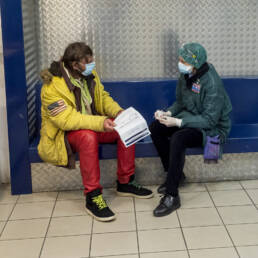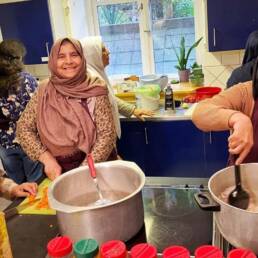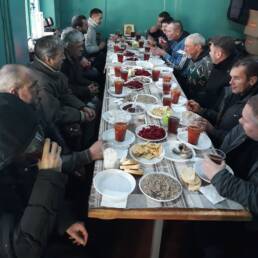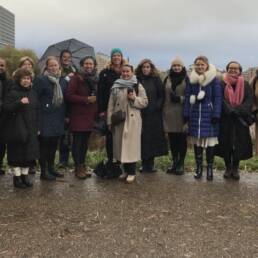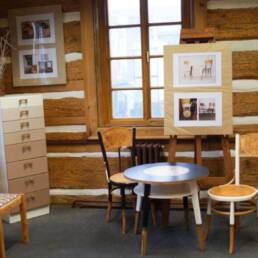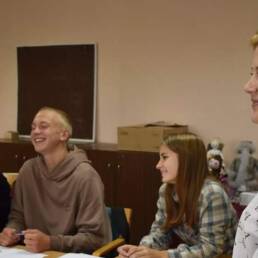Author
Jorge Nuño Mayer
Former Secretary General
Caritas Europa
“No tenemos ni pa’l butano” told me a man in despair who was receiving support from Caritas in the South of Spain, meaning “We don’t have enough money to buy a bottle of gas for cooking and heating”. Now, 25 years later, I still remember his words.
Over-indebtedness is one of those situations that lead people into poverty or worsen the possibilities to get out of it. We live in a consumerist environment, where we are permanently invited to buy everything on credit. Regardless of whether people fall into this trap due to ignorance or their own “fault”, to bad luck or by becoming victims of legal predators, it takes away the air that they breathe and their opportunities to live in dignity.
Over-indebtedness usually comes as a result of lack of education, unemployment or employment under very bad conditions (working poor), housing problems, health problems… But this is not a fatality: the situation would not be so harsh if we had properly functioning social systems in Europe: minimum income schemes, access to social services, etc.
The economic crisis that started 11 years ago and the austerity policies that followed has worsened the situation in most European countries. Today, in many countries the public social protection systems are weaker, less responsive to rights and needs and often more based on arbitrary grace and “budgetary availability” from the public authorities, paired with the old and wrong paradigm of the “guilty poverty”. And then, to worsen things, a new discourse appeared: confronting the poor among them, confronting the elderly with the unemployed, confronting the impoverished from here with the impoverished from abroad. Surely we cannot generalise: some regions and countries have even improved their social situation in the last 10 years and I know very committed politicians and concerned public servants at all territorial levels. But the social fabric is, without a doubt, weaker today.
What I like from Caritas and what I love from Caritas volunteers and employees, is how, moved with compassion, poverty and suffering are addressed in a comprehensive way. At the local level, in the over-indebtedness services, employment services, listening centres, parish centres and other 100 names of services and centres that come to my mind, Caritas people welcome the persons in need and treat them with humanity. I heard several times the words: “You haven’t solved my concrete problem, but you listened and you gave me back my dignity.” But also very often: “You helped me to solve my problem.” And so often just observing the children of a family playing crazily and happily around, drawing colourful pictures, is a precious reward. But that’s not all.
At the national level, Caritas has developed systems for the local and Diocesan Caritas to share their experiences and develop better methodologies. Caritas, especially at national level, developed more and more poverty observatories to better understand the reality and the causes of poverty. This is a crucial tool to bring the voices of the persons in need to policy-makers.
Caritas is not a “barricade-movement”, but a reliable and at the same time uncomfortable partner of governments. Reliable because Caritas believes in good policy-making and wants always to join forces, to sum up, to co-construct. But uncomfortable because Caritas’ interest is not the interest of one political party or of one or the other government, but the interest of the most disadvantaged people in society.
And how precious is the European level of Caritas! I remember the model to analyse poverty as a multidimensional reality, developed 12 years ago in Caritas Europa, all those spaces of exchange, learning and improvement among experts of national Caritas, and also the strong and appreciated advocacy voice at the Council of Europe, the EU Institutions and social media defending the rights of the most vulnerable.
And last but not least, Caritas Internationalis creating a space of global fraternity and defending at the UN in New York and Geneva the recognition and implementation of what we call the SDG1, the globally accepted first Sustainable Development Goal: to “end poverty in all its forms, everywhere”. All this in the frame of a faulty beloved Catholic Church, with a treasure of faith and social teachings; all this joining forces with other organisations and people of good will.
And with this, with our compassion and love to the people, we are stronger today. Without any doubt!
.




